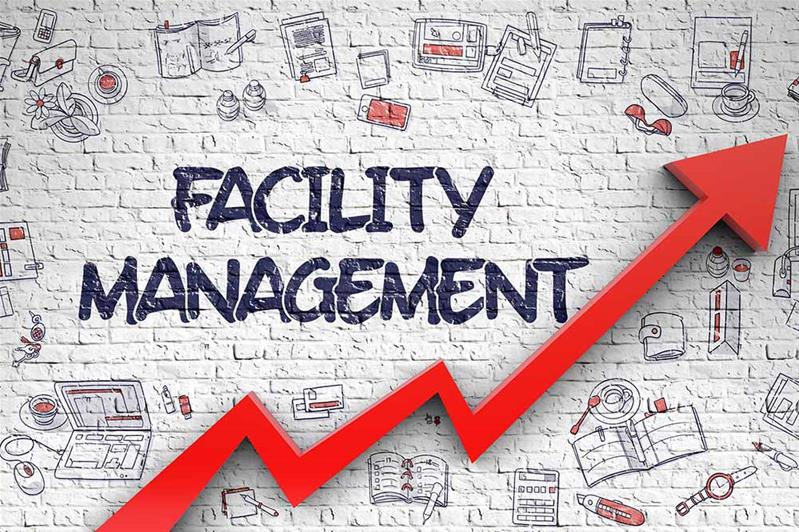Leading Benefits of Total Facility Management for Streamlined Operations
Total Facility Management (TFM) represents a calculated technique to boosting operational effectiveness by integrating various solutions, such as maintenance and security, under a unified management framework. This loan consolidation not only lessens redundancies but additionally leverages data analytics for educated decision-making and anticipating upkeep. Furthermore, TFM helps with streamlined communication among stakeholders, straightening operations with more comprehensive organizational objectives. Nonetheless, the question remains: what details benefits can organizations harness from embracing TFM, and how might these benefits change their operational landscape?
Improved Functional Effectiveness
Improved operational performance is a primary benefit of carrying out total facility management (TFM) approaches. TFM encompasses a thorough technique to managing a facility's sources, procedures, and facilities, ultimately streamlining operations. By combining various solutions-- such as maintenance, security, cleaning, and room management-- TFM boosts and lessens redundancies sychronisation amongst various functional features.
The integration of innovation further magnifies this performance. Advanced facility management systems supply real-time information analytics, allowing facility supervisors to make enlightened choices that enhance process and resource allotment. Anticipating maintenance methods, for instance, anticipate equipment failures before they occur, reducing downtime and extending asset lifespan.
Additionally, TFM promotes standard procedures across various departments, making certain consistency and quality in solution distribution. This harmony lowers operational disturbances and promotes a more collaborative workplace. Because of this, staff members can focus on their core duties, driving performance and boosting overall efficiency.

Price Decrease and Savings
Executing total facility management (TFM) not only increases operational effectiveness but likewise significantly contributes to cost decrease and savings. By combining different services under a single management framework, companies can remove redundancies and enhance procedures, consequently minimizing functional prices. TFM makes it possible for better procurement approaches, permitting companies to work out bulk buying contracts with suppliers and provider, leading to reduced prices.
Additionally, TFM highlights preventative maintenance, which lessens unexpected break downs and extends the life-span of vital devices. This aggressive strategy not only minimizes repair expenses however also improves the reliability of facilitiess, guaranteeing undisturbed procedures. Furthermore, energy effectiveness initiatives, usually a vital emphasis of TFM, cause substantial savings on utility costs, as facilitiess are optimized for lowered energy intake.
Improved Resource Management
Efficient source management is a foundation of total facility management (TFM), making it possible for organizations to optimize the usage of their properties and labor force. By implementing TFM strategies, organizations can thoroughly assess their resource appropriation, guaranteeing that every possession is used efficiently and effectively. This holistic method enables for the recognition of underperforming sources and the potential for reallocation or improvement.
On top of that, TFM facilitates the integration of innovation for real-time surveillance of sources, which assists in predicting maintenance needs and preventing costly downtime. By leveraging information analytics, companies can make educated choices regarding resource release, inevitably boosting efficiency and lowering waste.
Additionally, TFM advertises a culture of continuous renovation, motivating groups to on a regular basis assess and refine their source management practices. Total Facility Management. This proactive position not only minimizes functional disruptions however likewise promotes technology, as staff members are encouraged to suggest improvements based upon their get more direct experiences with resource utilization
Streamlined Interaction Networks
In total facility management, streamlined communication channels play an important role in fostering collaboration and effectiveness across groups. Efficient communication ensures that all stakeholders, consisting of facility managers, maintenance staff, and provider, are straightened with operational needs and organizational objectives. By developing clear lines of interaction, teams can promptly deal with worries, share updates, and apply services, thereby reducing downtime and improving performance.
With centralized communication systems, information is easily accessible, enabling real-time updates on upkeep demands, source allotment, and task timelines. This transparency not only reduces misunderstandings but you can try these out likewise equips staff members to make enlightened choices quickly. Structured interaction promotes much better sychronisation throughout emergency situations, guaranteeing that all workers are notified and can respond without delay.

Raised Focus on Core Activities
An essential advantage of total facility management is the enhanced focus on core activities, enabling organizations to focus on their main organization goals - Total Facility Management. By outsourcing non-core functions such as cleaning, upkeep, and safety, business can reroute their sources and power towards strategic campaigns that straight contribute to their affordable benefit and development
Total facility management integrates numerous operational jobs under a solitary umbrella, fostering effectiveness and lessening redundancy. This consolidation not only simplifies processes yet additionally boosts accountability, making certain that every facet of the facility operates harmoniously without drawing away interest from what genuinely matters-- core business features.
In addition, this technique enables employees to dedicate their effort and time to jobs that drive innovation and improve consumer contentment, as opposed to obtaining slowed down by functional difficulties. With a reliable facility management partner handling day-to-day operations, organizations can attain higher dexterity, react promptly to market modifications, and maintain a sharper emphasis on their objective.
Inevitably, boosted emphasis on core activities leads to enhanced overall performance, allowing companies to enhance their market position and meet their critical goals more successfully. - Total Facility Management
Final Thought
To conclude, Total Facility Management significantly enhances operational effectiveness by consolidating vital services and leveraging information analytics for notified decision-making. Expense decreases and boosted resource management add to total cost savings, while structured interaction channels foster collaboration among stakeholders. By permitting companies to concentrate on core activities, TFM not just maximizes performance but likewise reinforces market positioning. The integration of these visit the website benefits highlights the value of TFM in accomplishing sustainable operational excellence.
Total Facility Management (TFM) stands for a strategic strategy to enhancing operational efficiency by incorporating different solutions, such as upkeep and protection, under a unified management framework.Improved operational performance is a key advantage of executing total facility management (TFM) methods. Advanced facility management systems provide real-time data analytics, enabling facility supervisors to make educated choices that boost workflow and source appropriation.Carrying out total facility management (TFM) not only enhances operational effectiveness yet likewise significantly adds to cost decrease and cost savings.Effective source management is a foundation of total facility management (TFM), making it possible for organizations to enhance the usage of their assets and workforce.